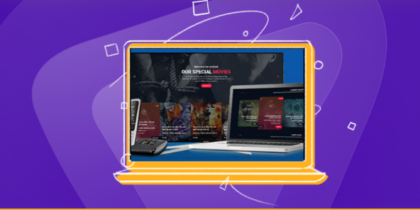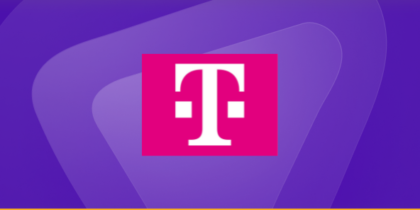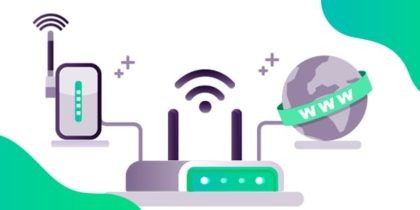Table of Contents
Have you ever dreamt of winning millions of dollars out of nowhere and living your life without lifting a single finger to work? Well, I think we all have, and this dream is probably why Publisher Clearing House’s scams have become so popular.
Source: PCH
What is PCH?
PCH sounds like a reliable business that is committed to offering sweepstakes and fantastic prizes. They’ve been operating for years, presenting huge checks to lucky winners as a surprise. But there are dangers in this because scammers find it easy to use PCH’s name and the charm of winning a lottery to scam people out of their money.
Scammers will exploit your emotions by impersonating a PCH agent and deceiving you into believing you’ve hit the jackpot. With the idea of winning big money, you get lured into their scheme even when they demand payment beforehand or require personal details.
Because of this, it’s crucial to be watchful and develop the ability to recognize these scams. We’re here to help you understand the PCH scam and prevent you from stumbling into a cunning trap.
Publisher Clearing House: Legit or a scam?
PCH has sold merchandise and magazine subscriptions to American households since 1967 and has donated over $500 million since its launch.
The company awards participants in the Publishers Clearing House sweepstakes $3 million to $13 million annually. The company itself is legal, but scammers use its name and brand recognition to trick people into handing over money and personal information.
Source: PCH
How does the PCH scam work?
PCH scam is a sweepstakes scam where scammers make people believe that they have won a great prize, but to get it, they’ll have to spend first or give them their personal information.
Here’s an example of this scam:
According to an online scam report, a person received a call from someone named “John Peterson” congratulating him for winning 9.5 million dollars from PCH and a new Mercedes with 5 years of Geico insurance and 1 year of gas from Texaco, which seems pretty exciting and specific to be honest.
The bad news is that it was all a scam because he asked the man to pay 250 dollars to the IRS through Western Union to receive the prize; the good news though that the guy didn’t fall for this scam and reported everything online here to raise awareness.
Watch out for these cunning PCH scams
Here are some of the scams to look out for:
Prize claiming fees
The scam starts with a phone call telling you you have won a prize, a new car, usually a Mercedes, or a vacation somewhere exciting. But to receive your prize, you’ll have to send money to the organization to pay the fees and other charges.
Source: PCH
Scammers can also spoof caller IDs to make it appear that they are receiving calls from the Publishers Clearing House; I know, very clever, right? Calls may also be scheduled to match the official price calendar of the publishing clearing house to make the fraud appear more legitimate.
Here’s how it may happen:
One such example is of a woman named Linda Hoffman called their targeted person giving them news about winning a grand prize but again, to receive it, he’ll have to pay taxes of $4,056, and one of their agents will accompany the person to the bank. Thankfully he caught the scam and reported it [*].
What to do if you receive such a call:
- Hang up right away if a fee is mentioned.
Beware, they might try to convince you that they’re sending money to cover those fees, and you might fall for this ruse if you listen more. So it’s best to hang up immediately.
- Caller ID can be spoofed, so don’t trust it either. Scammers can manipulate it, and they are skilled in making any name or number appear on your screen.
- Never share any personal information over the phone. Your identity is very useful for the scammers. They can get you to give sensitive information like your financial data. They aim to build trust but don’t fall for it, or you’ll lose more than trust.
“Claim agent” requesting financial information
It is a very common way of playing out this scam and very clever, too, because in this scam, the fraudster claims to be a third-party agent making it easier for him to sell made-up stories and identities.
They might not even ask for money right away but your personal information instead to claim the prize, and that’s where it becomes more dangerous because you might fall for it without realizing it, and he can steal your identity for other malicious schemes.
Here’s how it may happen:
One example of this scam is when a person received a call from supposedly PCH saying they won 8.5 million dollars and a 2020 Mercedes Benz plus $5,000 weekly for life. They must go through their verification process by talking to their prize-claiming agent and keeping everything confidential. That agent then asked the person to buy 500 dollars worth of Gift cards and to send them the code on it, which they recognized as a scam and thankfully didn’t fall for it [*].
What to do if you receive such a call:
- Don’t talk to any claiming agent. PCH never let any third-party agent contact the winner of any of their prizes. They do that directly, so don’t fall for it.
- Never share your data. Always remember that there is never a need to share your social security number or your financial information with anyone, least of all with prize-claiming agents.
PCH fake checks
In this PCH fraud, victims are persuaded to cash counterfeit checks sent to them via mail and wire some of the amounts to them for further proceedings.
As soon as you send them the amount they asked, you’ll learn that the check you excitedly cashed in your account was fake all along, resulting in a reversal of money, leaving you to pay the difference you transferred to scammers from your account.
This scam especially targets elderlies making them lose their pensions and savings, which is why the Department of Commerce in Minnesota warned all the citizens about this scam so that they could avoid falling for it [*].
What to do if you receive such a call or mail:
- Verify your winnings. If you get targeted by such a scam, always verify your winnings with PCH customer service by calling them on this number 1-800-459-4724.
- Keep your bank in the loop. Check with your bank to see if it is legitimate before cashing it. If a scammer tells you not to inform anyone about the check, that is an obvious red flag.
PCH imposters on Facebook
Scammers might also target you using a platform like Facebook. Since it’s very easy to check a profile on Facebook, they’ll know how to use their words to attract your interest.
They might also impersonate a real PCH person like Dave Sayer, Danielle Lam, Todd Sloane, or even an executive like Deborah Holland.
They take pictures from official prize patrol pages to make you buy their story, send you friend requests, then tell you you’ve won a hefty amount once you accept their request, eventually convincing you to send your money to them[*].
Source: PCH
What to do if you receive such a call:
- Don’t accept Facebook requests from PCH. Remember, the official Facebook page of Publisher Clearing House will never send you a request to inform you about your prize. Always check the tick mark on the page for verification. It says so on their official fan page.
- Let the officials know about this scam. Report the scam as soon as you get a friend request on your Facebook page to Facebook as well as to PCH.
New account to claim the prize
This way of scamming is a little different. In this scam, they’ll ask you to open a new account to receive your prize money and send them your account details. This is much more dangerous because what they are after is not just your money but your identity as well.
Here’s how it may happen:
Such a scam happened to an elderly couple in Tennessee where a person named Danielle Latruda told them that they had won a runner-up prize of a million and a half dollars and a Mercedes as well. All they have to do is open an account to receive the money and give the scammers a copy of their identification [*].
What to do if you receive such a call:
- Don’t give your ID to others. Keep your ID safe, as it is an important document. You can fall for identity theft if the wrong person gets your ID.
- Don’t open a new account. There is no reason for PCH to ask you for a new account. If you win any prize, either they’ll deliver it directly or send it to your already existing account without any condition attached to the prize money.
How to avoid falling for PCH scams
To avoid falling for PCH scams, here’s what you can do:
Verify your winnings.
It’s important to confirm any PCH call, mail, or prize claim by contacting Publishers Clearing House directly through their official channel. Don’t rely solely on unsolicited calls, emails, or text messages. Once you have verified your winnings, you can have a happy dance.
Source: PCH
Remember, no fees or payments.
Legit sweepstakes don’t require winners to pay fees or make payments to claim their prizes. If you were asked for money or personal information upfront, it’s most likely a scam.
Stay very cautious with personal information.
Avoid sharing sensitive information like your Social Security number (SSS), your bank account details, or your credit card information over the phone or email. PCH won’t ask for such information unnecessarily, and if they do, it will be from their official channels.
Trust your instincts.
Remember the golden rule; If something feels off or too good to be true, it’s probably a scam. Scammers often use high-pressure tactics to rush you into making hasty decisions. So take your time, research, and verify before providing any information or making payments.
Double-check caller IDs.
Scammers can manipulate caller IDs to appear legitimate or local. Don’t just rely on caller ID information to determine authenticity.
Educate yourself.
Stay informed about common scam techniques and tactics by reading cyber security news and blogs. Publishers Clearing House provides resources on their official website to help you identify and report scams.
Scam suspicion? Follow these tips.
- Contact Publishers Clearing House at 1-800-392-4190 if you receive a call about winning a prize. A PCH employee will tell you whether it is true or a scam.
- Report PCH about the scam. Fill out this form if you get scammed. Publishers Clearing House will share your report with FTC or Federal Trade Commission for further proceedings.
- If you receive a mail containing a fake check, file a report to the U.S. Postal Service Inspection Service (USPIS) online or this number 1-877-876-2455.
Lost your money to a PCH scam? Do this!
- The first step is to go to ReportFraud.ftc.gov to file a report of the fraud and provide them proof of the scam. They might try to verify the fraud and get your money back if you lost it to the PCH scam. If you’re lucky, they might catch the culprit, and you might get your stolen money back.
- Also, contact the FTC if you disclose confidential information before realizing the fraud. For this, visit IdentityTheft.gov and complete the FTC’s official identity theft reporting form. This is an important step if you have fallen victim to identity theft, as FTC reports help to dispute fraudulent transactions and restore trust after identity theft.
- Block the funds immediately and monitor your account for suspicious activity.
- If you have cashed a counterfeit check, contact your bank immediately and explain that you have been scammed.
- You may also need to file a police report with local law enforcement.
- Consider signing up for fraud protection and credit monitoring services.
- Chances are high that scammers will target you again in the future as scammers choose their targets based on your digital footprints, so to protect yourself from such scams, consider investing in a reliable VPN service that allows you to disguise your identity while browsing.
Shield your identity with PureVPN.
Staying incognito while browsing the internet has become very important due to cunning cyber schemes that have become very popular. A VPN should be your go-to tool in this fight against cyber crimes, as it will mask your identity by hiding your IP address from hackers. Choose PureVPN for it has:
- Military-grade 256 Bit encryption for high security.
- IP leak-proof technology.
- Zero logs policy.
- 6500+ servers across the globe.
In a nutshell
In conclusion, as much as you want to scream and lose your mind after receiving a lottery-winning call from PCH, take a moment to realize that it might be a scam. Always check and verify the official website and reach out to PCH’s official contact number before doing things like sending your money or your personal information.
If you still fall for a scam, report it and share it with others to raise awareness. To avoid scams like a PCH scam or any other scam, secure your identity with a VPN service.
For any assistance regarding PureVPN, please get in touch with us via the LiveChat option.
Frequently Asked Questions
At Publishers Clearing House (PCH), the winners of major prize awards are personally notified by the renowned Prize Patrol in a live and in-person manner. For winners of prizes amounting to $10,000 or less, PCH may choose to notify them using an overnight express carrier like UPS, FedEx, or USPS Express Mail, or occasionally through email. However, it’s important to note that major prize awards and SuperPrize winners are never notified via email.
Yes, PCH will still notify you if you win a prize. Just make sure to update your address here to make it easier for them to locate you.
It’s important to know that if you spot a scam, make sure to avoid any further contact with them and report them immediately to your local police, FTC department, and the official site if they are impersonating a legit organization.
Publishers Clearing House offers numerous opportunities for winning and awards a wide range of prizes. The number of prizes may differ each year, but on average, they distribute a substantial amount ranging from approximately $3 million to slightly over $13 million annually.
If a scammer has contacted you by email or through Facebook, it is crucial to report it. You can complete a Scam Incident Report form and forward the scam email or Facebook request to abuse@pch.com. Remember to include the complete header information of the scam email when reaching out to PCH.



